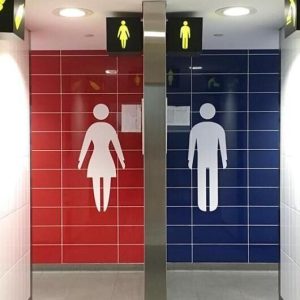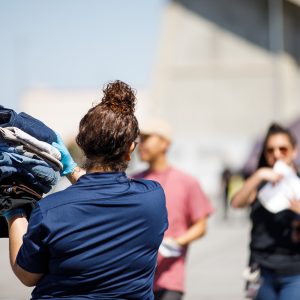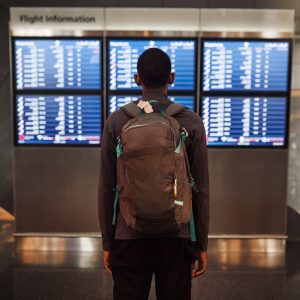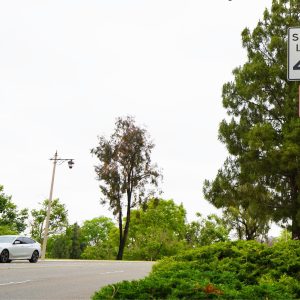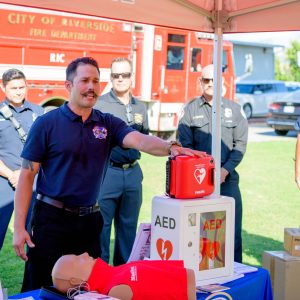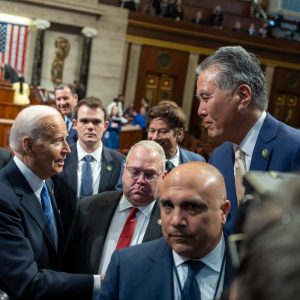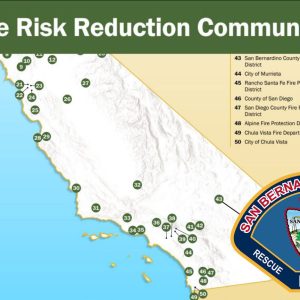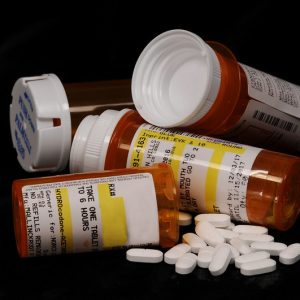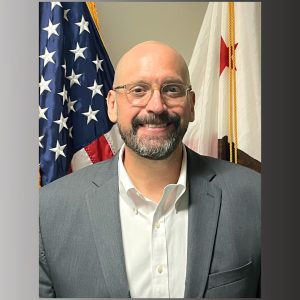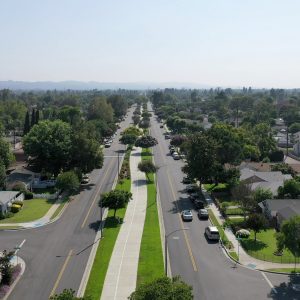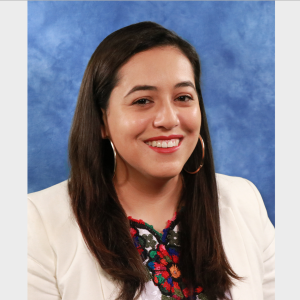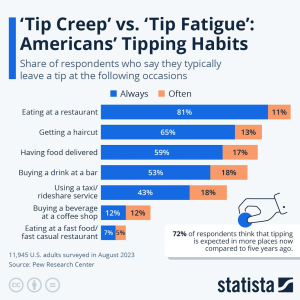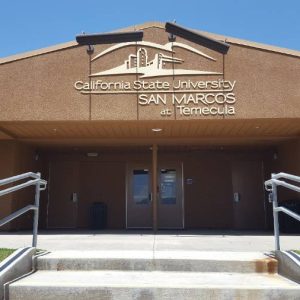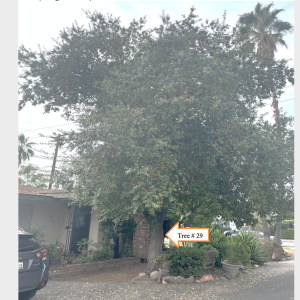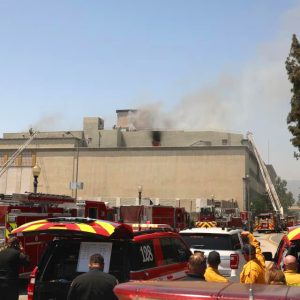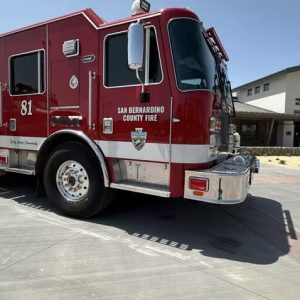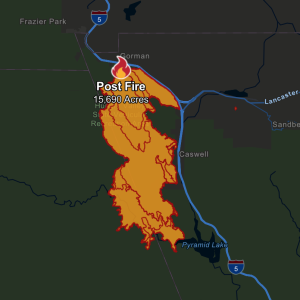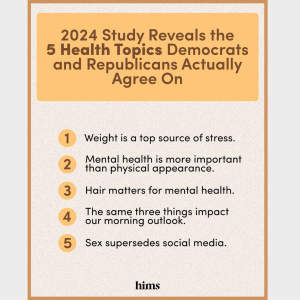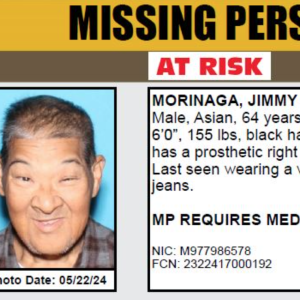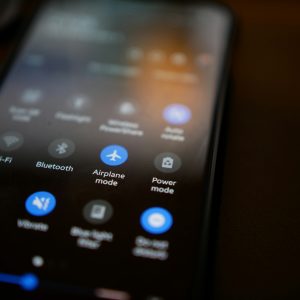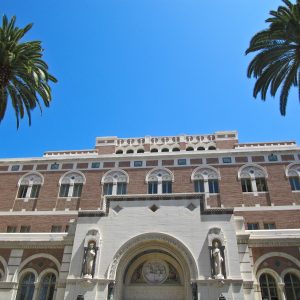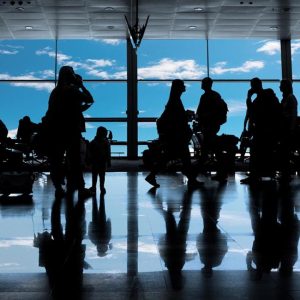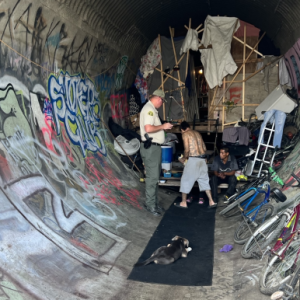 View Winners →
View Winners → 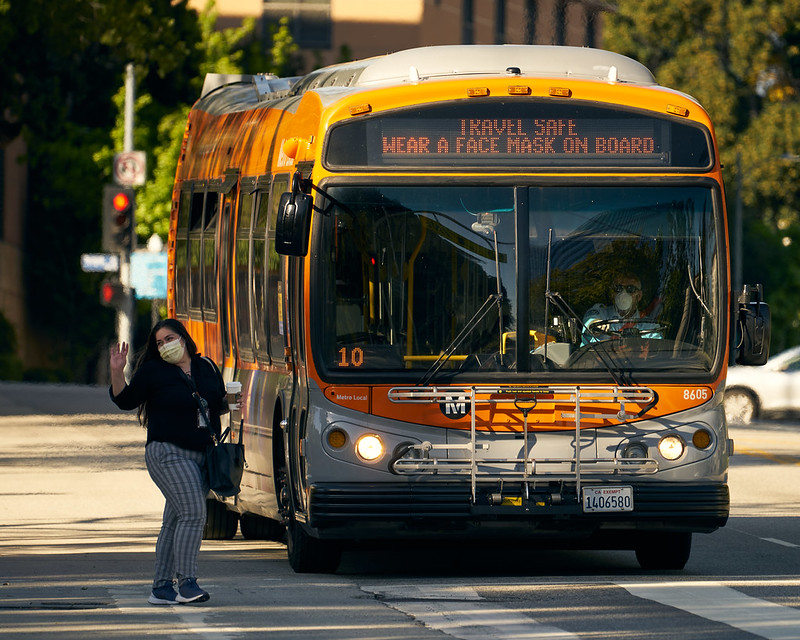
With COVID-19 case numbers steadily rising — enough to push Los Angeles County into the “medium” virus risk level — the mask-wearing requirement on public transit and at transportation hubs has officially been extended.
The county issued a health order in late April requiring masks on transit vehicles and at hubs such as airports and train stations. The requirement, however, was set to expire in a matter of days. The county Department of Public Health announced Friday the mandate has been extended for either another 30 days or until the county sees a sharp drop in virus transmission, whichever comes first.
Masks were previously required nationally on public transit and in transportation facilities, but a federal judge struck down the requirement last month. The county initially followed the ruling and the transportation mandate was dropped locally, but when the U.S. Centers for Disease Control and Prevention opted to appeal the ruling, the county issued a new health order reinstating the mask requirement locally.
The requirement affects people on trains, subways, buses, taxis, ride-hailing vehicles and at bus terminals, subway stations and indoor port terminals. It also affects airports, but does not extend to airplanes, which are under federal jurisdiction.
The extension of the transit-masking requirement comes one day after the county moved from the CDC’s “low” community virus activity category to “medium.” The shift came when the county’s cumulative weekly rate of new COVID cases exceeded 200 per 100,000 residents, reaching 202 per 100,000.
Moving to the “medium” category did not trigger any immediate changes in health regulations in the county, which was already maintaining stepped-up precautionary recommendations that align with the CDC’s guidelines under the “medium” ranking. Those include requiring masks on public transportation and at high-risk settings such as hospitals and homeless shelters, and maintaining widespread availability of vaccines and access to testing, including at-home tests.
The county still is not mandating mask-wearing in all indoor public settings, but it is being strongly recommended. Masks would become mandatory indoors if the county slips into the “high” COVID level. Reaching that mark would require a sharp increase in COVID-related hospitalizations.
Numbers of COVID-positive patients have been increasing in recent weeks, and the percentage of emergency room visits associated with the virus crept up to 5% over the past week — up from 4% the previous week. But so far, the overall hospital statistics are still well within the CDC’s parameters for the “medium” COVID level.
Under CDC guidelines, counties in the “medium” category will move to “high” if the rate of new virus-related hospital admissions reaches 10 per 100,000 residents, or if 10% of the county’s staffed hospital beds are occupied by COVID-positive patients.
County Public Health Director Barbara Ferrer said Thursday the county’s current rate of new COVID-related admissions is 3.4 per 100,000 residents, and the rate of hospital beds occupied by COVID-positive patients is roughly 1.7%.
Ferrer said she remains “hopeful” the county will avoid sliding into the “high” COVID community level, but only if residents and businesses don’t “shy away” from safety practices “that are known to reduce transmission,” such as indoor masking and ensuring people are up to date on vaccinations.
“We know what works — masking, testing, and vaccination, along with systems and policies that support the use of these and other effective safety measures,” Ferrer said in a statement Friday. “If each of us takes advantage of the good access to these effective resources, I am hopeful that we can slow transmission again, prevent strain on our healthcare system, and protect each other.”
The county reported 3,180 new COVID infections on Friday, lifting the overall total from throughout the pandemic to 2,929,950. Ten more virus-related deaths were also reported, raising the cumulative local death toll to 32,074.
The average daily rate of people testing positive for the virus rose to 3.7%, up from 3.5% a day earlier.
Los Angeles County does not report coronavirus data on weekends, but state figures released Saturday showed that the number of COVID-positive patients in county hospitals increased by one to 402, the highest number since late March. The number of those patients being treated in intensive care was 44, down from 47 a day earlier.
Health officials have noted in recent weeks that the vast majority of COVID-positive hospital patients were actually admitted for reasons other than the virus, with many only discovering they were infected when they were tested at the hospital.





